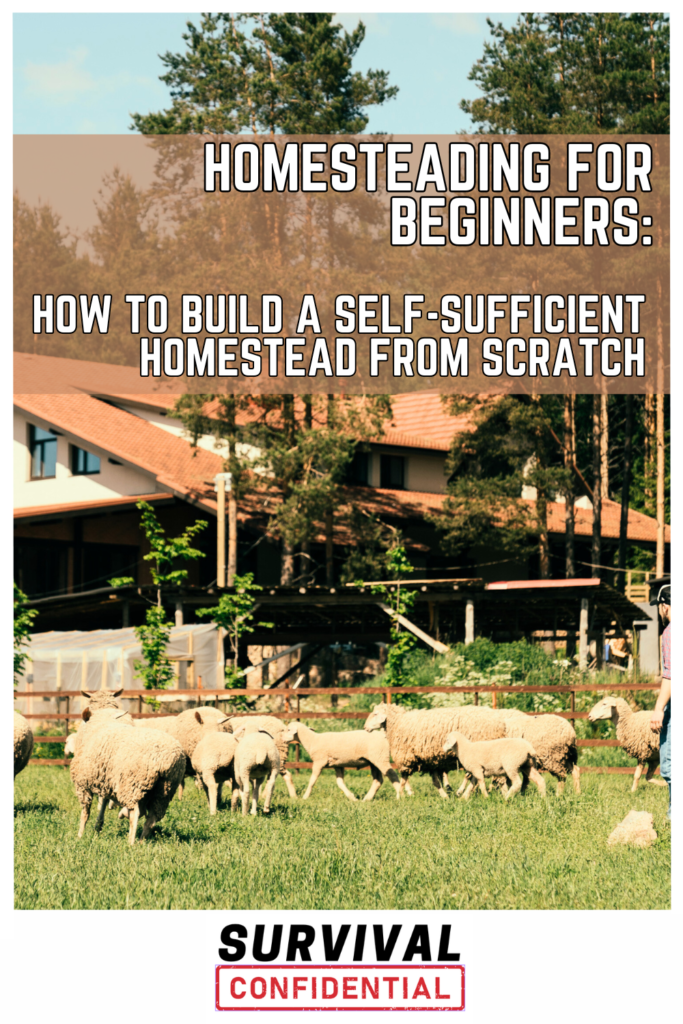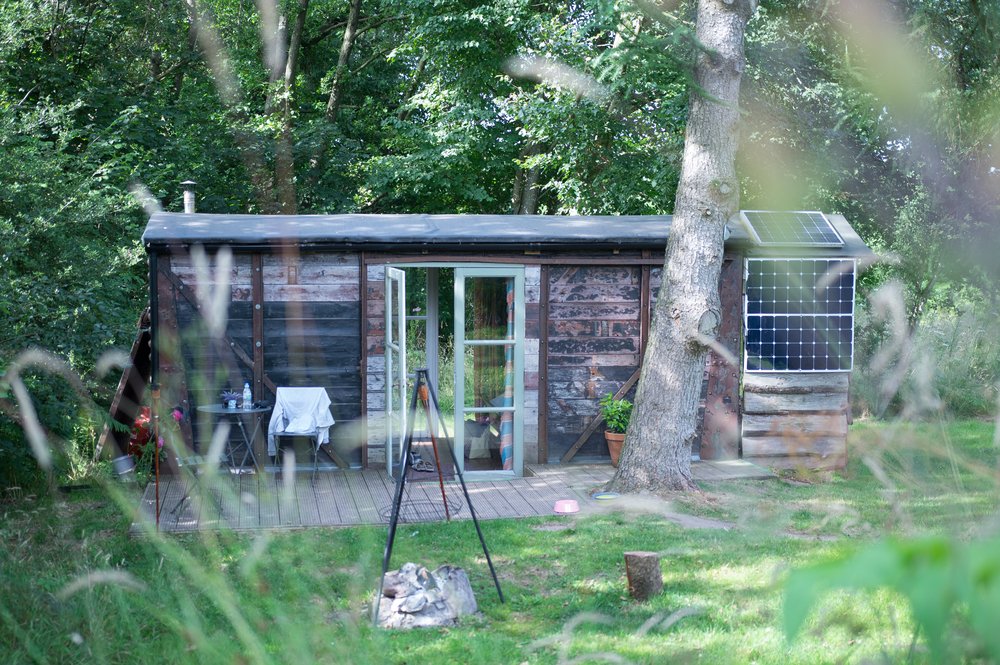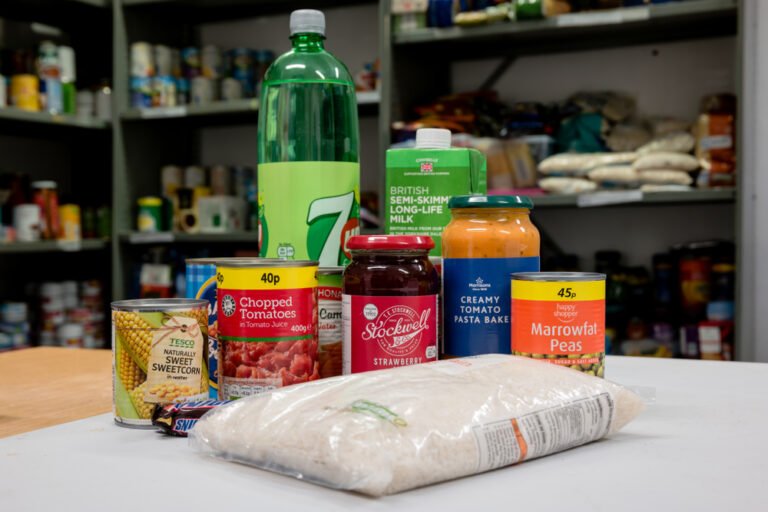Homesteading for Beginners: How to Build a Self-Sufficient Homestead from Scratch
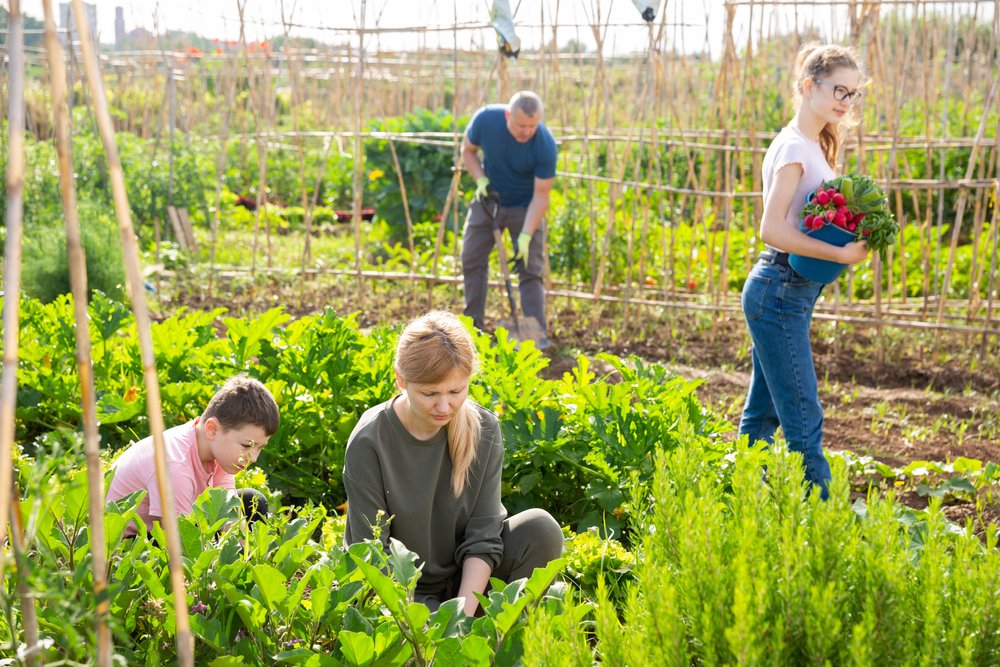
What is Homesteading?
As a passionate homesteader, I’ve come to understand homesteading as more than just a lifestyle; it’s a rewarding journey towards self-sufficiency and connection with nature. Homesteading involves a range of activities like growing your own food, raising livestock, preserving produce, and creating a sustainable living environment, regardless of the size of your land.
Why It’s Gaining Popularity
In today’s fast-paced world, more and more people are yearning for a simpler, more meaningful way of life. Homesteading offers just that. It’s not just about the rustic charm or the back-to-basics approach; it’s about taking control of your life, understanding the value of hard work, and enjoying the fruits of your labor, quite literally!
Benefits of Homesteading
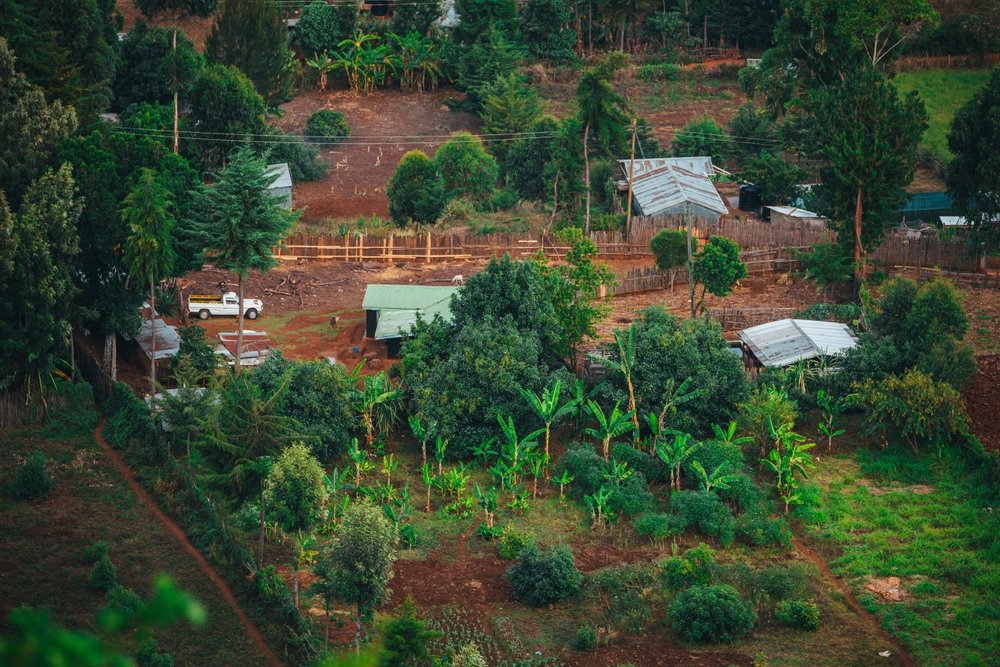
Self-Sufficiency
Growing Your Own Food
Imagine stepping outside your door and walking into a garden brimming with ripe, colorful vegetables and fruits. That’s the joy of homesteading. You’re not just planting seeds; you’re cultivating a direct connection with your food. There’s something incredibly fulfilling about nurturing a plant from seed to harvest. It’s not only about the freshness and taste but also about the pride that comes with self-reliance.
Reducing Dependence on Supermarkets
In our modern world, we often take for granted the convenience of supermarkets. However, homesteading opens up a new perspective. By growing your own produce and perhaps raising your own livestock, you reduce your reliance on commercial food chains. This not only ensures a supply of fresh and organic food but also insulates you from market fluctuations and supply chain disruptions.
Healthier Living
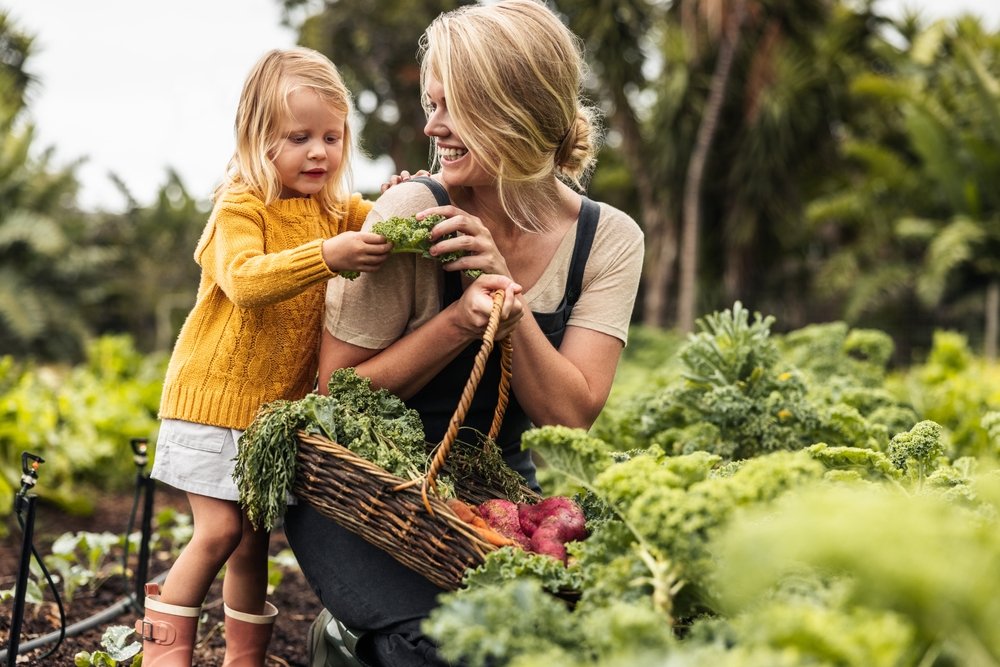
Organic Produce
One of the most significant advantages of homesteading is the ability to grow organic food. No more worrying about pesticides or genetically modified organisms. You control what goes into your soil and onto your plants. This means healthier, nutrient-rich food that contributes to the overall well-being of your family.
Physical Activity
Homesteading is not just good for the soul; it’s excellent for the body too. It naturally integrates physical activity into your daily routine. Whether you’re tending to your garden, fixing a fence, or taking care of animals, these activities provide a great workout, keeping you fit and active.
Environmental Impact
Sustainable Practices
As homesteaders, we have a unique opportunity to implement sustainable practices. From composting kitchen waste to harvesting rainwater, every small step contributes to a larger impact on preserving our environment. By choosing a lifestyle that respects and nurtures the planet, we set a positive example for future generations.
Reducing Carbon Footprint
By producing much of what you consume on your own land, you significantly reduce the carbon footprint associated with transporting food and goods. Homesteading encourages a cycle of growth, consumption, and renewal that is inherently more sustainable than conventional lifestyles.
Financial Savings

Cost of Living
In a world where living expenses constantly rise, homesteading offers a practical way to cut down costs. When you grow your own food, generate your own energy, and undertake DIY projects, you’re not just saving money; you’re investing in a sustainable lifestyle. Over time, the initial investment in tools, seeds, and livestock pays off, and the savings can be significant.
DIY Projects
Homesteading and DIY go hand in hand. Whether it’s building a chicken coop, repairing a fence, or creating a rainwater harvesting system, there’s always a project to tackle. These projects not only save money but also imbue a sense of accomplishment. Plus, the skills you learn are invaluable and can be applied in various aspects of life.
Educational Opportunities
Learning New Skills
Homesteading is a continuous learning journey. From gardening and carpentry to animal husbandry and canning, there’s always something new to learn. These skills are not just practical; they also promote a growth mindset and self-confidence. Plus, they can be passed down to future generations, preserving important knowledge and traditions.
Teaching Children
For families, homesteading offers a unique educational environment for children. It teaches them about the origins of food, the importance of hard work, and the value of sustainability. Engaging in homesteading activities can also enhance children’s problem-solving skills, responsibility, and connection to nature.
Community and Lifestyle

Building a Community
Homesteading often leads to the development of tight-knit communities. Whether it’s through local farmers’ markets, community gardens, or homesteading groups, there’s a shared sense of purpose and support. These connections are invaluable, offering a network of knowledge, resources, and friendship.
Slower Pace of Life
In contrast to the hustle and bustle of urban living, homesteading offers a slower, more deliberate pace of life. It allows you to appreciate the small moments, whether it’s watching the sunrise while tending to your garden or enjoying a home-cooked meal with family. This slower pace can lead to a more mindful and fulfilling life.
Emotional Wellbeing
Connection with Nature
Homesteading fosters a deep connection with nature. There’s a rhythm to this lifestyle that resonates with the cycles of the earth – planting in spring, harvesting in autumn, preparing for winter, and rejuvenating in summer. This connection can lead to profound emotional and spiritual growth.
Sense of Accomplishment
Finally, the sense of accomplishment that comes with homesteading cannot be overstated. Whether it’s harvesting your first crop, successfully raising chickens, or completing a DIY project, these achievements bring immense satisfaction and boost self-esteem.
Getting Started with Homesteading
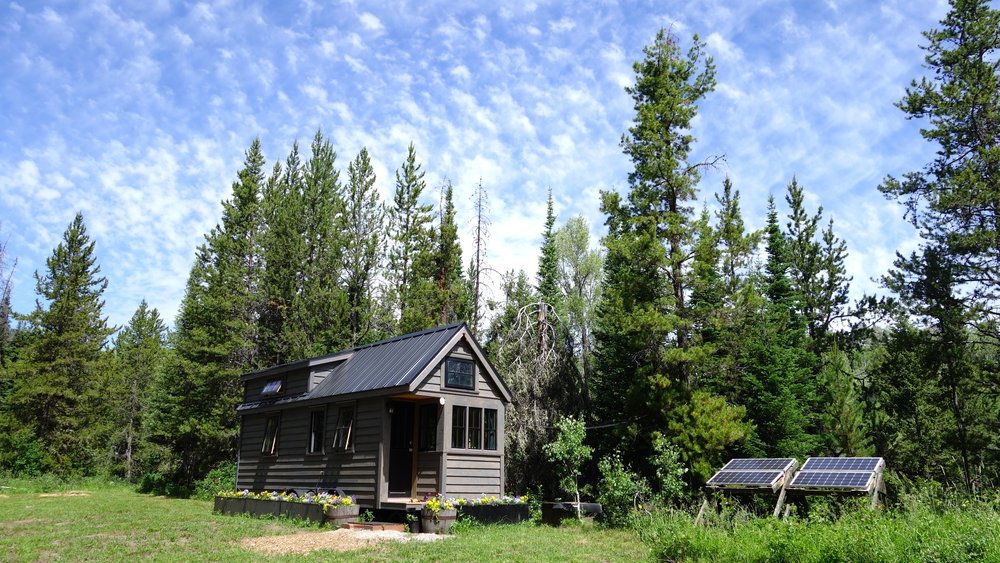
Choosing the Right Location
Understanding Climate and Land
The first step in starting your homesteading journey is choosing the right location. It’s essential to understand the climate and the type of land you’re working with. Research the local weather patterns, soil quality, and water availability. These factors will significantly influence what you can grow and raise on your homestead.
Zoning Laws and Regulations
Before you dive in, familiarize yourself with the local zoning laws and regulations. These rules can affect everything from the types of structures you can build to the kinds of animals you can raise. Ensuring compliance from the start can save you from headaches later on.
Planning Your Homestead
Setting Realistic Goals
When planning your homestead, it’s crucial to set realistic goals. Start small and gradually expand your activities as you gain more experience and confidence. This approach helps you manage your time and resources more effectively and avoid feeling overwhelmed.
Budgeting and Resource Management
Effective budgeting and resource management are key to successful homesteading. Plan your finances carefully, considering both initial investments and ongoing expenses. Also, think about how you can efficiently use and reuse resources to minimize waste and maximize productivity.
Challenges and Solutions
Initial Costs
Investing Wisely
One of the significant challenges of starting a homestead is the initial cost. Investing in land, tools, seeds, and livestock can be expensive. However, with careful planning and research, you can find cost-effective solutions. For instance, buying second-hand tools or starting with a small garden can reduce initial expenses.
Seeking Financial Assistance
There are various ways to seek financial assistance for starting your homestead. Look into government grants, loans, or community-supported agriculture programs. These resources can provide the necessary support to get your homestead up and running.
Time Management
Balancing Homesteading with Other Responsibilities
Balancing homesteading with other life responsibilities can be challenging. It requires careful planning and time management. Prioritize tasks, create a schedule, and don’t be afraid to ask for help when needed. Remember, it’s okay to start slow and gradually increase your homesteading activities.
Adapting to Unexpected Situations
Homesteading often comes with unexpected challenges, be it extreme weather, pests, or other issues. Being adaptable and learning to pivot when necessary is crucial. Joining local homesteading communities can provide valuable support and advice during such times.
Conclusion and Reflections
Homesteading is more than just a way of living; it’s a journey towards a sustainable and fulfilling life. It empowers you to live in harmony with nature, develop new skills, and build a resilient and self-sufficient lifestyle. While it comes with its challenges, the rewards are immeasurable – healthier living, financial savings, and an invaluable connection to the earth and community.
FAQs
- What is the best way to start homesteading? Start small, focus on learning one or two skills at a time, and gradually expand your activities as you become more confident and experienced.
- Can I homestead in a small space? Absolutely! Urban homesteading is growing in popularity, and there are many ways to practice homesteading techniques in small spaces, like container gardening and vertical farming.
- How much time does homesteading require? The time commitment depends on the scale of your homestead and the activities you choose to pursue. Start with what fits into your schedule and expand as you can.
- Is homesteading cost-effective? While the initial setup can be costly, in the long run, homesteading can be very cost-effective, reducing living expenses and providing numerous ways to generate income.
- Can homesteading be a full-time job? For many, homesteading starts as a hobby but can grow into a full-time occupation, especially if it expands into areas like selling produce, crafts, or offering educational workshops.
Resources:
- Home Gardens as Agroforestry Systems: Research has explored the role of home gardens, which are a key component of homesteading, in providing food security, enhancing household well-being, and offering both ecological and economic benefits. These gardens vary significantly across different regions and are influenced by local ecological conditions, family resources, and socio-economic factors. They play a critical role in supplementing family food requirements, particularly in developing countries, and offer a range of benefits from nutritional security to environmental conservation.
- Health Benefits of Gardening: A study highlighted the mental and physical health benefits of gardening, an activity central to homesteading. It revealed that exposure to green spaces and gardening activities can reduce mortality rates, act as natural antidepressants, and even improve learning capacities. Gardening was found to have therapeutic effects, helping in stress reduction and enhancing overall well-being. Additionally, the production of oxygen by plants and the role of trees in urban areas were noted for their significant environmental impact.
These studies and insights can be incorporated into the article to provide a more in-depth and scientifically-backed perspective on the benefits of homesteading, particularly emphasizing the positive impacts of home gardening and agroforestry practices on personal health and environmental sustainability.
